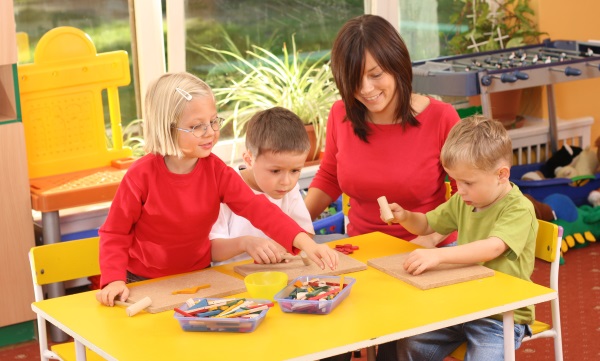As an early years practitioner you will know the importance of creating the right balance between adult-led and child-initiated learning. Help all children learn and develop with this guide.

Adult-led activities are based on our own professional understanding of what we should teach young children and what experiences they should have. Through adult-led activities we can introduce children to new ideas, provide opportunities for them to develop their skills and ensure that they experience all areas of learning in the Early Years Foundation Stage (EYFS).
During adult-led learning we can feel that we are in control of the teaching we are providing. However, what we cannot have any control over is what young children are learning from these experiences. This is why it is so important to balance adult-led learning with time and opportunity for children to explore their own ideas, play with resources and use their imagination and creativity.
It is only through doing this and practising the skills that they have learned that children will be able to take ownership of their learning and be able to apply it in different situations.
To provide high-quality experiences for young children we should aim for a balance of adult-directed activities and child-initiated activities - a third each is common. The other third of the time should ideally be taken up by child-initiated activities that are then picked up on and supported by an adult – these are opportunities for ‘sustained shared thinking’ to take place.
These ratios are of course flexible, depending on practitioner judgement and the individual needs of each child.
When explaining to colleagues and parents the importance of children’s self-initiated play and learning you may find it useful to use the phrase ‘the serious business of play’. This comes from the Foundation Phase framework in Wales and is very effective in giving children’s self-initiated play and learning the importance it deserves.
Children learn through first-hand experiential activities with the serious business of ‘play’ providing the vehicle. Through their play children practise and consolidate their learning, play with ideas, experiment, take risks, solve problems, and make decisions…
First-hand experiences allow children to develop an understanding of themselves and the world in which they live.
The role of the adult in child-initiated learning is to:
Our bite-size training course will help you meet the standards of learning, development and care in all aspects of the EYFS.
To support child-initiated learning in your setting, think about how you provide a wide range of interesting open-ended resources for children to explore and use.
 Become an Optimus member
Become an Optimus memberOptimus Education is dedicated your school's improvement. As an Optimus member, you receive access to our online library of resources, policies and training courses.
From bright ideas for early years management to Ofsted recommendations, we have everything you need to provide effective provision in your early years setting.